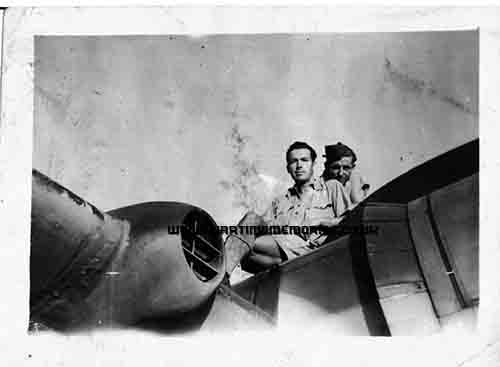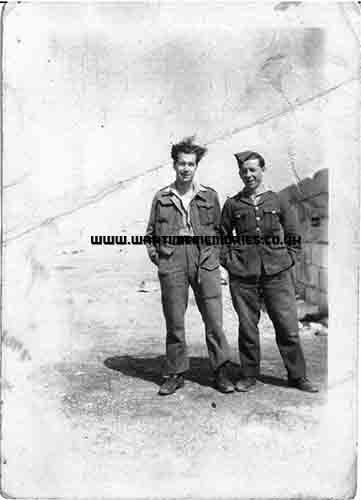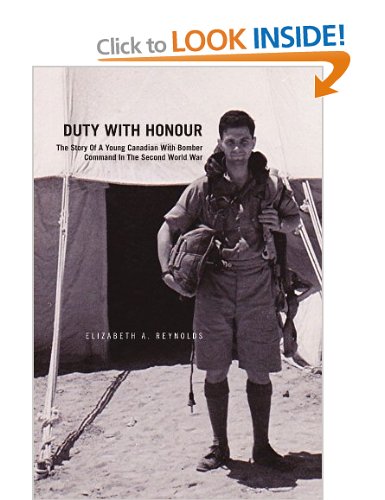|
|
|
Those known to have served at RAF Luqa during the Second World War 1939-1945. The names on this list have been submitted by relatives, friends, neighbours and others who wish to remember them, if you have any names to add or any recollections or photos of those listed,
please
Add a Name to this List
|
|
|
The Wartime Memories Project is the original WW1 and WW2 commemoration website.
Announcements
- The Wartime Memories Project has been running for 24 years. If you would like to support us, a donation, no matter how small, would be much appreciated, annually we need to raise enough funds to pay for our web hosting and admin or this site will vanish from the web.
- 22nd April 2024 - Please note we currently have a huge backlog of submitted material, our volunteers are working through this as quickly as possible and all names, stories and photos will be added to the site. If you have already submitted a story to the site and your UID reference number is higher than 263973 your information is still in the queue, please do not resubmit, we are working through them as quickly as possible.
- Looking for help with Family History Research?
Please read our Family History FAQ's
- The free to access section of The Wartime Memories Project website is run by volunteers and funded by donations from our visitors. If the information here has been helpful or you have enjoyed reaching the stories please conside making a donation, no matter how small, would be much appreciated, annually we need to raise enough funds to pay for our web hosting or this site will vanish from the web.
If you enjoy this site
please consider making a donation.
Want to find out more about your relative's service? Want to know what life was like during the War? Our
Library contains an ever growing number diary entries, personal letters and other documents, most transcribed into plain text. |
|
We are now on Facebook. Like this page to receive our updates.
If you have a general question please post it on our Facebook page.
Wanted: Digital copies of Group photographs, Scrapbooks, Autograph books, photo albums, newspaper clippings, letters, postcards and ephemera relating to WW2. We would like to obtain digital copies of any documents or photographs relating to WW2 you may have at home. If you have any unwanted
photographs, documents or items from the First or Second World War, please do not destroy them.
The Wartime Memories Project will give them a good home and ensure that they are used for educational purposes. Please get in touch for the postal address, do not sent them to our PO Box as packages are not accepted.
World War 1 One ww1 wwII second 1939 1945 battalion
Did you know? We also have a section on The Great War. and a
Timecapsule to preserve stories from other conflicts for future generations.
|
|
Want to know more about RAF Luqa? There are:328 items tagged RAF Luqa available in our Library There are:328 items tagged RAF Luqa available in our Library 
These include information on officers, regimental histories, letters, diary entries, personal accounts and information about actions during the Second World War. |
|
F/Lt. Herbert Lindsay "Monk" Reynolds 37 Squadron 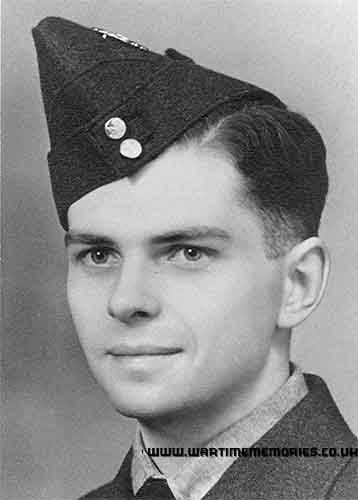 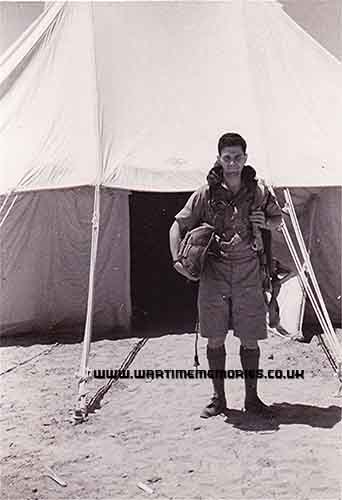 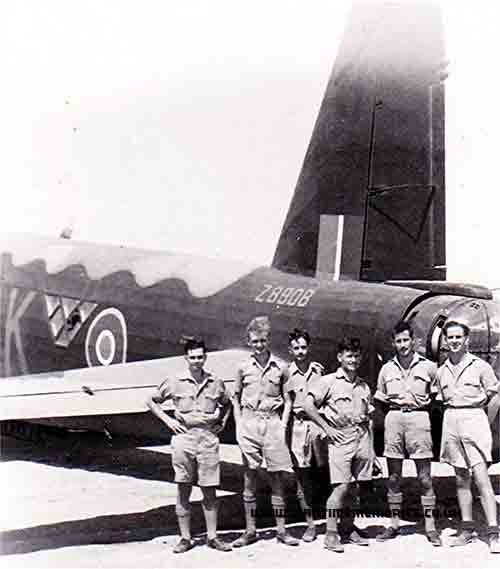 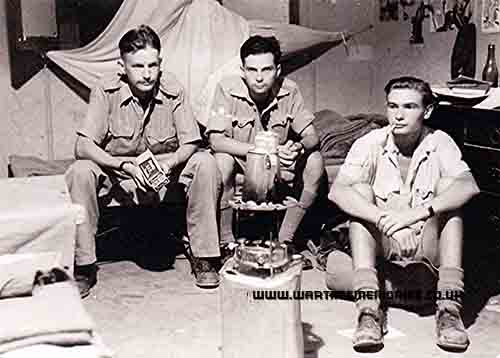 Lindsay Reynolds or Monk as he was known to his crew, enlisted in the Royal Canadian Air Force in November 1940. Following BCATP training as an Observer in western Canada he set sail for Britain in August 1931. He was assigned to No. 22 OTU at Wellesbourne. Later he was sent to the Middle East.
Having sufficient flying time to his credit he and his crew left for Gibraltar from Overseas Air Dispatch Unit, Portreath on 23 March 1942 aboard Wellington aircraft DV517B.
On 31 March the crew were briefed for their six hour and fifty-two minute flight to Malta. Less than two hours after take they were in trouble. Fuel consumption was down. They knew they had to return to Gibraltar. Lindsay launched a ``sea marker`` to get a better reading on wind velocity and direction. On their descent into Gibraltar they flew over a merchant convoy of fifteen ships. Attempting to line up over the runway, they knew it was going to be rough landing. Just prior to crashing Lindsay braced himself with the insteps of both feet against the main spar of the aircraft. The plane crashed on landing and collided with two spitfires. Everything went up in flames, but the crew were able to escape the wreckage. The pilot, P/O Norman Knight was severely traumatized and was quickly removed from the rest of the crew. All the crew were badly shaken up. Lindsay had broken a bone in his foot but decided not to mention it to the medical officer for fear that he would be held back from operations.
The crew returned to England aboard the Llanstephan Castle in search of another plane. They did no flying during April and May 1942. Lindsay was showing signs of PTSD, feeling anxious and struggling to concentrate. “After our accident the M.O. seemed to think it quite natural to be so affected but I do wish I could feel more at ease than I do. To rest is utterly impossible, and I dread the thought of flying again…I also find it so hard to study…sometimes I find myself reading and reading and not getting a thing out of it…” (Letter from Lindsay to his brother Arnold, 21 May 1942).
During the last week at Hartwell the crew was assigned another pilot, P/O Sgt. Mackenzie – a Canadian. On 6 June the crew flew to Gibraltar aboard Wellington DV652V. They left Gibraltar for Malta the next day, arriving on the same day as Canada’s Ace, “Daredevil” George Beurling. The crew landed at 21:35 local time. The plan was to refuel as quickly as possible. While refuelling took place the crew was briefed on the next leg of their journey to Egypt. They were informed that they would be transporting civilians – the wife and two children of an officer. Suddenly the briefing was interrupted by a bombing raid. It was imperative that the plane get airborne before it was hit and put out of action. Interrupting the briefing, and rushing to the plane with their precious cargo, they boarded and lined up for take off. The two Wellingtons ahead of them were hit as they attempted to get airborne. Now Lindsay’s crew had slightly less runway to work with and Sgt. Mackenzie, giving it all he had, managed to get airborne avoiding the enflamed wreckage at the end of the runway at Luqa airstrip.
They had escaped the bombing, and quickly Lindsay navigated their course away from the enemy airplanes over the skies of Malta. Ninety minutes later they were recalled to Malta. At 01:45 on 10 June they landed at Luqa airfield for the second time in five hours. The fires of bombed and burned wreckage were all around the airfield illuminating the night sky, and the acrid smell of jet fuel and chemicals filled the air. It was a frightening sight. Their passenger, the mother of the two children, had not been informed that they were returning to Malta. She thought she had escaped the nightmare, only to find that she had returned to it. Upon learning of her whereabouts she burst into tears.
The crew spent two eventful days on Malta. During this time Lindsay did a shift as acting air traffic controller at Luqa. He experienced another “first.” Up until that point he had only attended military funerals, but on Malta, because he was “a religious man,” he was required to perform the burial service of a fellow airman killed in the bombing the night before since there was no available padre. At twenty-two years of age, with only the New Testament that he carried in his breast pocket, he dutifully performed his sacred duty.
The next day the crew was walking over open ground on their way to Veletta. Just as they reached the middle of the field, out of nowhere came a German fighter pilot swooping down to fire on the airmen in the field. They were like ducks in a barrel. The German pilot came low enough to look into the faces of the airmen,andt to their great surprise and overwhelming relief, rather than firing on them he signalled with his finger and flew off. He could have gunned them down with the push of his thumb, but didn’t have the stomach for it.
The crew arrived at the RAF station at El-Daba, Egypt on 12 June 1942. While at El-Daba the crew was broken up and ordered to different squadrons. Lindsay was ordered to report to 37 Squadron RAF at Abu Sueir. He arrived at Abu Sueir on 30 June.
Lindsay’s first night of operations was 8 July 1942. Wellington AD645H was airborne by 22:30 (local time), and Lindsay navigated the plane to the Target – Tobruk. The captain announced that the target was dead ahead and ordered him forward to prepare for the bomb run. He lay on the padded inside panel of the entry hatch to drop his bombs. He heard the pilot say he could see fires in the dock area and some bursting flak. Lindsay called out the approach bearings for the bomb run to the captain, who confirmed he had opened the bomb doors. He flipped his toggles on the bomb panel to arm the bomb. On the final approach he called out course corrections with “left, left…right, left…Hold it, steady, steady…bombs gone!” With that cry from Lindsay Pilot Officer Dudley threw the aircraft into a rather violent bank to port. The interior of the aircraft was suddenly lit up in the orange flash of exploding shells. Suddenly the sky lit up. They were caught in the search lights of the German ground forces. The crew heard the unmistakable sound of flak, too close for comfort. Their skilled and seasoned pilot suddenly took the most violent evasive action, putting the aircraft into a nose dive in an attempt to avoid the enemy search lights. He continued to dive while the crew hung on for dear life. The Wellington vibrated and shook, and all but broke apart as they descended at this accelerated pace. Pilot Officer Dudley then attempted to pull out of the dive. He pulled back on the control column or stick. Nothing happened. The gravitational force was too great. He tried again, and this time he put both feet on the instrument panel and pulled, using the full weight of his body. He was unable to muster enough strength on his own to overcome the gravitational force of the dive. Dudley shouted at the second pilot to help him. Together they put all their weight into it, and pulled back for all they were worth. As the men pulled with all their might, suddenly by shear brute force, the aircraft began to recover from the dive and they were on their way back to base.
Later that month P/O J.R. Dudley was awarded the DFC for his courage and skill as a pilot. Lindsay always credited P/O Dudley for saving his life that day.
On nights when he wasn’t flying he enjoyed sitting off by himself in the desert looking up into the night sky. This is when he felt closest to God, and would often take his Methodist hymn book with him to read.
He flew throughout July and August, with some time off to visit some of the holy spots of Palestine and some time at the beach. The break was important to the stressed aircrew.
In September his crew crash landed in the desert. The crew slept during the heat of the day and walked at night until they were picked up by British forces. After verifying their identities they were returned to base at Abu Sueir.
On 1 October Lindsay was promoted to Warrant Officer.
A tour of operations was considered to be 30 operational flights. Lindsay completed an official tour of operations in the month of September, but continued flying with the squadron. He was yet to receive any further orders. They continued to fly, attacking shipping and jetties at Tobruk.
Lindsay’s final operation was on 12 October 1942. He ended his tour as he had begun it – bombing enemy shipping at Tobruk. He was finished. The Air Force said so. He had completed a tour of 32 operations, and had logged a total of 251 hours and 50 minutes of operational flying. He was ordered back to Britain. On 23 October, the opening day of the Battle of El Alamein he said good-bye to his crew and 37 Squadron, and travelled to 23 PTC. Yet unknown to him, on the same day he was promoted to Pilot Officer. He would have to wait until his return to Britain to be notified of his promotion.
Lindsay’s return trip to Britain took a total of 87 days. He arrived back in Canada the end of March 1943. Within three months of his arrival home he married his sweetheart, Jean Hull. They enjoyed 62 years of life together, until his death in 2005.
Lindsay spent the remainder of the war as a flight instructor at No. 9 AOS at St. Jean, Quebec, and finished with the rank of Flight Lieutenant. By war’s end he had in his possession an Air Observer’s Badge and Operational Wings. Over the course of his service in the RCAF Lindsay had also earned four medals: Africa Star and Clasp; Defence Medal, General Service Medal, and Canadian Volunteer Service Medal. In Canada these medals were not automatically issued to deserving veterans. In the RCAF the onus was oddly on the veteran to make application for any medals he had earned. Lindsay would not apply for the medals that he had earned and was entitled to have, as he” saw no virtue in seeking reward for doing one’s duty”. He had simply done his duty, nothing more, and that was all.
In July 1945 he registered in the Engineering program at McGill University. Upon graduation he was employed by Shell Canada, and continued with them as a chemical engineer until his retirement in 1983.
For a more detailed read on the life and service of Lindsay Reynolds see Duty With Honour: The Story of a Young Canadian With Bomber Command
|
Sgt. James Samuel Sargent DFM. 82 Squadron James Sargent is my father but, as I was not born until 1945, I don't know too much about his time at RAF Watton except that he was a member of 82 Squadron, flying Blenheim bombers. He was a navigator and flew with Taff Watkins (pilot) and Eric Chandler (gunner). Later, when 82 sqn. was sent to Malta, his aircraft was badly damaged by flak and the pilot (Taff Watkins)was badly wounded in the legs. Although not trained as a pilot, my dad managed to fly the aircraft back to base (Luqa)and Taff Watkins regained enough consciousness to land safely. For this, he was awarded the DSO and Eric Chandler and my father were both awarded the DFM.
My dad continued to fly throughout the war and had a long career in the RAF, retiring as a Sqn. Ldr. Taff, Eric and my dad remained lifelong and both Taff and Eric were my godfathers.
|
"Taff" Watkins DSO 82 Squadron Taff Watkins was a pilot in 82 squadron at RAF Watton flying Blenheim bombers, with James Sargent (Navigator) and Eric Chandler (gunner). When 82 sqn. was sent to Malta, his aircraft was badly damaged by flak and he was badly wounded in the legs. Although not trained as a pilot, James Sargent managed to fly the aircraft back to base (Luqa) and Taff Watkins regained enough consciousness to land safely. For this, he was awarded the DSO and Eric Chandler and James Sargent were both awarded the DFM.
|
Eric Chandler DFM 82 Squadron Eric Chandler was a gunner flying in Blenheim bombers with 82 Squadron from RAF Watton. Later, when 82 sqn. was sent to Malta his aircraft was badly damaged by flak and the pilot (Taff Watkins)was badly wounded in the legs. Although not trained as a pilot, navigator James Sargent managed to fly the aircraft back to base (Luqa) and Taff Watkins regained enough consciousness to land safely. For this, Taff Watkins was awarded the DSO and Eric Chandler and James Sargent were both awarded the DFM.
|
Pte. George William Hall 2nd Battalion Royal West Kent Regiment George Hall was posted to Malta in 1939 where he was defending Luqa Airfield till November 1942.
The 2nd Battalion Royal west Kent Regiment was then posted to North Africa. Records are not clear as to when he was captured but family members have told of capture in Malta. George was then marched and moved by train to Stalag IVf Hartmansdorf Chemnitz. Records first list George as missing, however, was reported on 16th of November 1943 as Prisoner in German hands. George was later set free and left the forces in 1946. Not much is know of his time in the battalion but if anyone knows of George please add your stories and comments.
|
Walter Smith 108 Squadron Walter Smith was my father. I have photos of him on the aircraft at Luqa dated Sept 1943.
|
Flt.Lt. Norman Mandelson 162 Squadron (d.9th Nov 1945) Flight Lieutenant (Pilot) Norman Mandelson was the son of Samuel and Rose Mandelson, of Mold, Flintshire.
He was 26 when he died and is buried in the Marsa Jewish Cemeterty in Malta.
|
F/Sgt. William Vernon Rattee 203 Squadron (d.23rd Mar 1943) Bill Rattee joined the RCAF circa 1941, he would have been 20 years old. From what I can determine from the limited material I have he ended up in Luqa with RAF 203 Squadron in late 1942 or early 1943. He was killed in a test flight on 23rd of March 1943, at 22 years old.
|
Sgt. John Henry "Jack" Stubbs 21 Squadron (d.11th February 1942) Combat Report
Air Ministry (London) 20.04.1948
Copy to RAAF Overseas HQ Canberra House (London)
- Aus. 406374
- Sgt. Stubbs, J.H. Pilot
- 1265240 Sgt. Tyas, P. A/OBS
- 976771 Sgt. Graham, J.S. WO/AG
Blenheim Mk. 4, Z.9823 21 Squadron, was one of a vic. of four which took off from RAF Station Luqa on the morning of 11.02.1942 to carry out a shipping sweep of the Kerkenna Islands.
On returning to base, the gunner in the leading aircraft received by W/T the stand-off signal Air Raid in Progress. The formation circled a point approx. 50 miles south of Malta for 15 minutes, during which time no more stand-off signals were received. The gunner then wirelessed for instructions. The reply was in the form of a Q.D.M. This Q.D.M was followed in until approx. 3 miles from Filfola (sic) when the formation was attacked by enemy fighters and aircraft Z.9823 was shot down into the sea.
A search was made but no survivors could be found. It must therefore be presumed that this crew are Lost at Sea.
J.S. Chick (Sqd)
Group Capt. Commanding
RAF Station Luqa
|
Cpl. William Harry Wallett No. 21 Squadron (d.28th Dec 1941) My grandfather, John Wallett, kept the following letter regarding his son Harry Wallett, tucked away in his belongings and never spoke about it. Only recently have I discovered the letter during searches about my family history:
Hairmyers Hospital, Lanarkshire, June 5th.
Dear Mr. Wallett, I have been meaning to write to you for a long time. I did write to you from Gibraltar, but I have reason to believe that the letter never reached England, owing to the ship being sunk. I was the pilot of your son’s plane. When we hit the sea near the rock, Harry came up alongside of me when I was floating in the water, and I tried to keep his head above the water, but I was forced to leave go of him when the plane sank a minute or two later, and I rather think he must have been caught up in the under-carriage, but all this can interest you better now. What I really want to say is that Harry was a splendid mechanic and took such a tremendous interest in his work, that I took special care to see that only he looked after my plane. I am quite sure that if only he had vetted the plane at Gibraltar instead of the Gibraltar mechanic, we would never have had the engine trouble and failure, and crash, but he was not allowed to, and somebody else did the engine check-up, and we had engine trouble about five minutes after taking off.
My choice of him as a mechanic was a terrible one for him, because he lost his life as a result, but I thought I must write and tell you how very much he was appreciated.
The ground mechanics at an RAF station get very little credit from the public, but they do a tremendous lot of work and your son, especially, was the best man at his job that I ever met. I wish I knew a tenth as much about a plane as he did.
I am still in hospital after getting a broken leg in the crash. I was ten weeks in bed at Gibraltar, but I am up on crutches now and hope to be flying again in a few months. It’s nice to be back in Scotland again after Gibraltar. The rest of the squadron had a very bad time of it in Malta, only six crews were left after two months of operations.
With deepest sympathy, yours sincerely, A.D. Tanered
|
Recomended Reading.Available at discounted prices.
|
Duty With Honour: The Story of a Young Canadian With Bomber CommandElizabeth Reynolds
Lindsay Reynolds or Monk as he was known to his crew, enlisted in the Royal Canadian Air Force in November 1940. Following BCATP training as an Observer in western Canada he set sail for Britain in August 1931. He was assigned to No. 22 OTU at Wellesbourne. Later he was sent to the Middle East.
|
|
|








